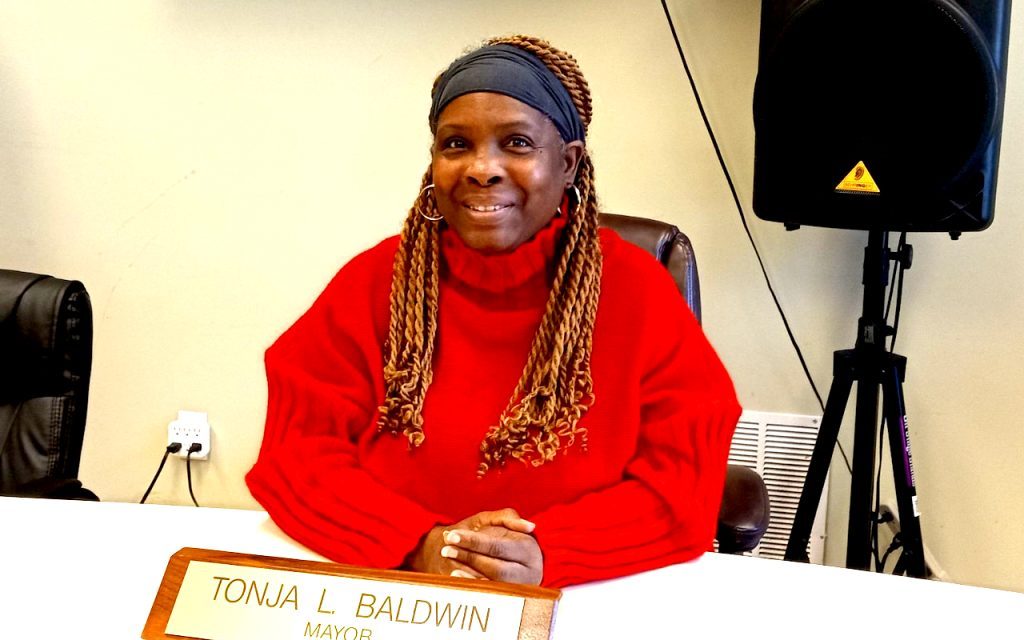SPEAKIN’ OUT NEWS
As the dust settles on a contentious legal battle over bingo operations, leaders in the small west Jefferson County town of Lipscomb are shifting focus to new ways to sustain their struggling community. Once propped up by revenue from its bingo halls, the city faces a financial crisis after a state crackdown ended the practice and seized bingo-generated funds.
“I don’t see us surviving without more businesses here,” said Mayor Tonja Baldwin.
The shutdown of Jay’s Charity Bingo, Lipscomb’s primary revenue source, has left the city of approximately 2,000 residents reeling. The vacant facility serves as a stark reminder of the town’s reliance on bingo. Even its rooftop sign, with the word “bingo” conspicuously missing, reflects the abrupt end of operations.
The closure followed a raid by Alabama Attorney General Steve Marshall, who accused the facility of operating outside state law. Marshall froze the business’s assets and named Lipscomb as a defendant in the legal dispute.
The fallout intensified existing tensions among city leaders, with council members blaming Baldwin for approving bingo operations without proper oversight, while the mayor pointed fingers at the council for failing to act. However, both sides now agree that resolving their differences is critical to saving Lipscomb.
“We need to come together, be open-minded about our roles, and work toward helping this city thrive,” said Council President and Mayor Pro Tem Barbara Moore. “I’m optimistic that we can do this together.”
Moore emphasized the need to revisit the city’s bingo ordinance to ensure compliance with state law while also implementing stronger financial policies.
In the short term, Lipscomb faces severe challenges. The state has released approximately $107,000 of city funds, but another $71,000 remains frozen. Baldwin stressed the urgency of accessing those resources.
“We need every dime to pay bills and keep payroll going,” Baldwin said.
The town’s financial dependence on gaming highlights a larger issue, according to Charles Ball, executive director of the Regional Planning Commission of Greater Birmingham.
“Gaming doesn’t create wealth; it just divides the pie into thinner slices,” Ball said. “Communities like Lipscomb need to look at long-term solutions that foster economic development.”
Ball encouraged Lipscomb to explore initiatives like landbanks to repurpose old properties and partnerships with organizations such as Mainstreet Alabama, which specializes in revitalizing commercial areas through public-private collaborations.
“This isn’t just for large cities,” Ball explained. “Smaller towns can benefit too, particularly along older commercial corridors like Bessemer Road. Lipscomb could collaborate with nearby towns such as Fairfield, Midfield, and Brighton to attract investment and development.”
Despite the setbacks, Baldwin remains hopeful, pointing to signs of progress. A new convenience store and café have recently opened, while plans are in the works for a bakery, laundromat, and affordable housing initiatives.
“We’ve closed one chapter, and now it’s time to move forward,” Baldwin said. “Bringing businesses here is our priority. We need to stand together because negativity only holds us back.”
Baldwin has not ruled out retooling the bingo ordinance to align with state requirements, noting the vital role bingo revenue played in sustaining city operations.
“That revenue covered most of our payroll,” she said.
Ultimately, Baldwin and the council agree that collaboration is the town’s best chance for survival.
“It’s time to focus on positive steps,” Baldwin said. “There’s plenty of work to do, and we need to do it together. This city can’t afford division.”
Ball echoed this sentiment, stressing the importance of teamwork for small communities like Lipscomb.
“These towns are too small to go it alone,” he said. “Collaboration is their lifeline to a sustainable future.”











